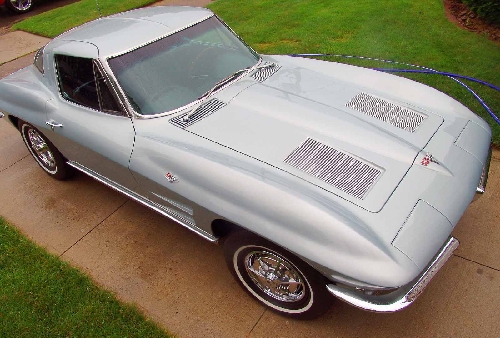What’s a classic car really worth?
The letter will usually begin something like this: "Dear Rhonda,
I have a 19XX model of such-and-such a vehicle. I think it's really rare and I've seen some go for as much as (insert sky-high value here). How much is it worth? Do you want to buy it?"
I'm not really sure why I get e-mails like this, but I do get them.
I don't have a computer hard drive in my head to store the current value of every vehicle that has ever been produced, nor does the boss view researching those values as a necessary part of earning my keep here at the Wheelbase Media wonderland.
So, I give the standard answer to anyone who asks what their vehicle is worth: only what someone is willing to pay. And just because you see an auction on TV where a similar-appearing vehicle sells for $30,000, $50,000 or $3 million, doesn't mean that your vehicle is worth that amount on the open market with real-world buyers. It's a great thought, though.
An auction -- and especially a TV auction -- for an individual vehicle is not a realistic determiner of value for the entire market for one simple reason: It's what two or more people battling back and forth will pay at that very moment in time for that one vehicle. With everyone watching -- including the TV cameras -- the bidding is pushed to the absolute max. The selling price is therefore not an indication of the general market, but quite the opposite: It's an anomaly.
But, somehow, people watching from home, with a crusty old clunker in the garage, grow dollar signs in their pupils thinking that they're sitting on buried treasure.
Maybe they are, but most likely they're not.
There's a huge difference between a four-door 1970 Chevelle with a 350-cubic-inch engine and a 1970 Chevelle SS 454, even though they might sort of look a bit the same on the outside. How huge a difference? How does $150,000-plus sound?
Yet, you see it all the time: "1970 Chevelle w/350. Similar car sold for $200,000 on a TV auction. Needs restoration. Asking just $75,000."
That's an absurd example, but this is what happens, and it throws our whole value system out of whack.
How much is the Chevelle worth? It's an issue of demand. The SS 454 LS6 is arguably the most potent General Motors Corp. vehicle from the muscle-car era. It's rare with only a handful of high-quality examples remaining, and, read my lips, most importantly, it's highly desirable. Can you say "cha-ching?"
Rareness alone does not dictate the value of a vehicle. Someone has to want it. You could have the only vehicle of a certain type left in existence, but if there is no buyer for it, what's it worth? Zilch.
During the Mustang's first years, Ford cranked out upwards of one million units. There's no shortage of Mustangs (it's not a rare car) even 40 years later, but their prices remain healthy because they're still desirable. By contrast, in the Wheelbase fleet is a 1969 Plymouth Sport Satellite convertible with a 383 motor. The car is one of 190 or so produced with the 383 (the rest came with the 318 V-8) with just 40,000 original miles. How many are left today? Thirty? Maybe 50?
Mostly restored with fresh paint, the original sheet metal and a perfect leather interior, this car would probably be hard-pressed to match a similar-quality and much more plentiful Mustang convertible. Beauty is in the eye of the beholder, it seems, and rarity doesn't always translate into dollar signs.
You can get a general idea of what to expect to pay for any vehicle, new, used or antique, by doing your homework. Newsstand publications such as Auto Trader and websites such as www.traderonline.com, www.ebaymotors.com as well as this paper's website will help establish some familiarity with makes, models and price ranges.
If you're selling and don't have the time or patience to hunt around, a qualified independent appraiser will provide a value based on condition, inventory, rarity and desirability.
When it comes to older cars, especially, condition is a very subjective thing. Note the price range between a completely restored -- inside and out, top to bottom -- vehicle and one that appears to be in average condition, and mentally rank any other prospects in between.
Generally, the closer the car is to original condition, the higher the value. Modifications, especially irreversible modifications, will usually detract from the value, no matter how much the seller says it cost him or her to make. Cars with incorrect engines and transmissions are also normally worth less.
Take for example a $2 million 1970 Plymouth Hemicuda. In this case, you're paying for complete originality, so what kind of penalty is incurred by having the wrong engine? Half perhaps? The more expensive the car, the more research on the vehicle you need to do.
I'm just scratching the surface here as you can tell. There are still issues about buying to resell, buying on emotion ("It's just like my first car!"), knowing what to pay for a custom vehicle and buying for long-term investment purposes.
This could probably be a book ... hmmmm, then I could help you determine vehicle value and please the boss by doing my job. But please don't e-mail me wondering if I want to buy your car.
Rhonda Wheeler is a journalist with Wheelbase Media, a worldwide supplier of automotive news, features and reviews. You can e-mail her by logging on to www.wheelbase.ws/media and clicking the contact link.














